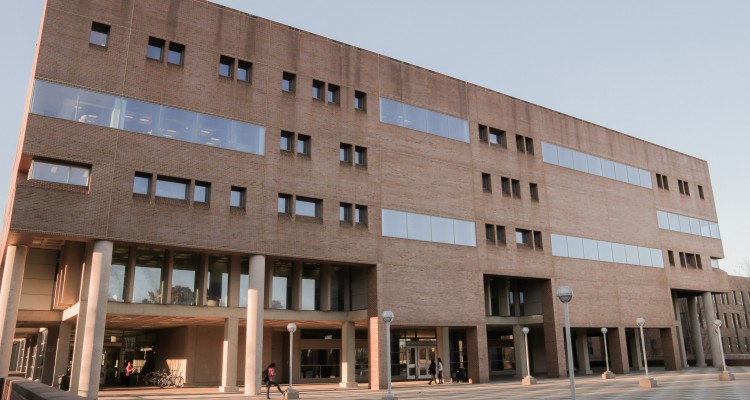By Helen Stec
A six percent reduction in the University of Connecticut Libraries’ budget has prompted cuts in services and an extensive review of the libraries’ current collections.
The libraries’ budget decrease is a part of the cuts UConn has employed to close its $18.3 million budget deficit—a result of education cuts in the state budget earlier this year.
“Along with everybody else in the university, we have had a budget decrease, and so we are seriously looking at our collections, in terms of reduction in our collections,” said Jean Nelson, head of programming, marketing, and communications for the UConn Libraries. “It doesn’t mean that we’re not purchasing anything, it just means we’re being a little more judicious about what we do purchase.”
Patrick Carr, Associate University Librarian for Collections and Discovery, said the libraries knew their budget would be reduced, but they did not know the full extent of the cuts until July at the beginning of the 2015/2016 fiscal cycle. The budget was decreased by six percent, and an additional three percent decrease is anticipated in the next fiscal cycle.
Nelson said that when deciding what to trim, the libraries try to eliminate services and collections that have the least impact on its patrons. However, she said tough cuts still have to be made.
“When we are talking about trimming—because we’ve trimmed some services, we’ve trimmed staffing—nothing is untouchable at this point for us,” Nelson said.
The libraries have retained about $220,000 in funds for the purchase of books and media—about 39 percent less than last fiscal cycle.
As a result, the libraries are increasingly emphasizing the use of materials that are either held in its existing collections or supplied by instructors, as well as decreasing streaming access to films in support of course curriculum. In addition, patrons can no longer recommend that interlibrary loan requests be converted into purchases for the libraries’ permanent collection.
Funding for the purchase of journal and database subscriptions has also been decreased by approximately 0.6 percent to $5.3 million.
The UConn Libraries worked with the College of Liberal Arts and Sciences, the Department of Mathematics, and the College of Agriculture, Health, and Natural Resources to develop one year cost-sharing arrangements. The groups are funding some of the subscriptions that the libraries’ collections review initially identified as candidates for cancellation.
The collections review is looking into additional ways to offset the cuts, including Open Access models of scholarship — things like journals and papers — and the adoption of Open Educational Resources.
“We’re supporting ways in which that content can become freely accessible online, so it can be accessed by anyone, because right now, most of that scholarship, most of the articles that professors and researchers at UConn write is only accessible through a subscription,” said Carr.
Currently, most scholarly research can only be accessed through subscription. Carr said this is an unsustainable model because as the libraries’ budget is reduced, subscription inflation grows by about five percent per year.
“We’re sort of trying to facilitate changes in the models through which the scholarly ecosystem works, so that more of the research that’s being conducted is openly accessible, and those changes might transform the way that libraries think about collections,” Carr said.
However, he said the UConn Libraries must continue reviewing their collections in preparation for the next fiscal cycle’s anticipated three percent cut.
Carr said the next step of the collections review is to engage the UConn community—faculty in particular. The collections review wants qualitative input on the resources the libraries currently subscribe to. This would help the libraries identify collection reduction decisions that would have the least negative impact on its patrons.
“The funding that the library has a direct impact on the extent to which the library can meet its mission of helping the UConn community succeed in its research and learning,” Carr said.


